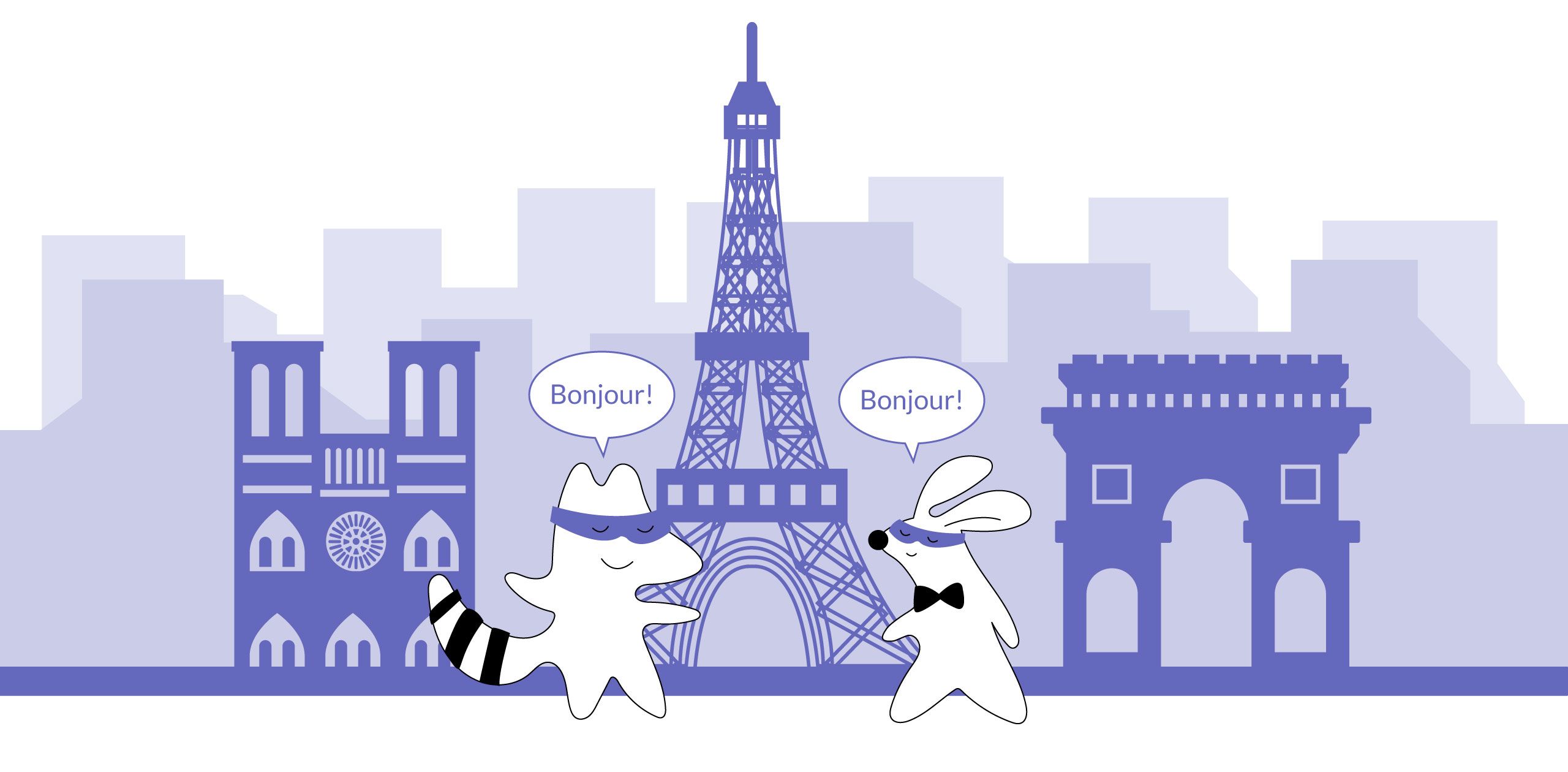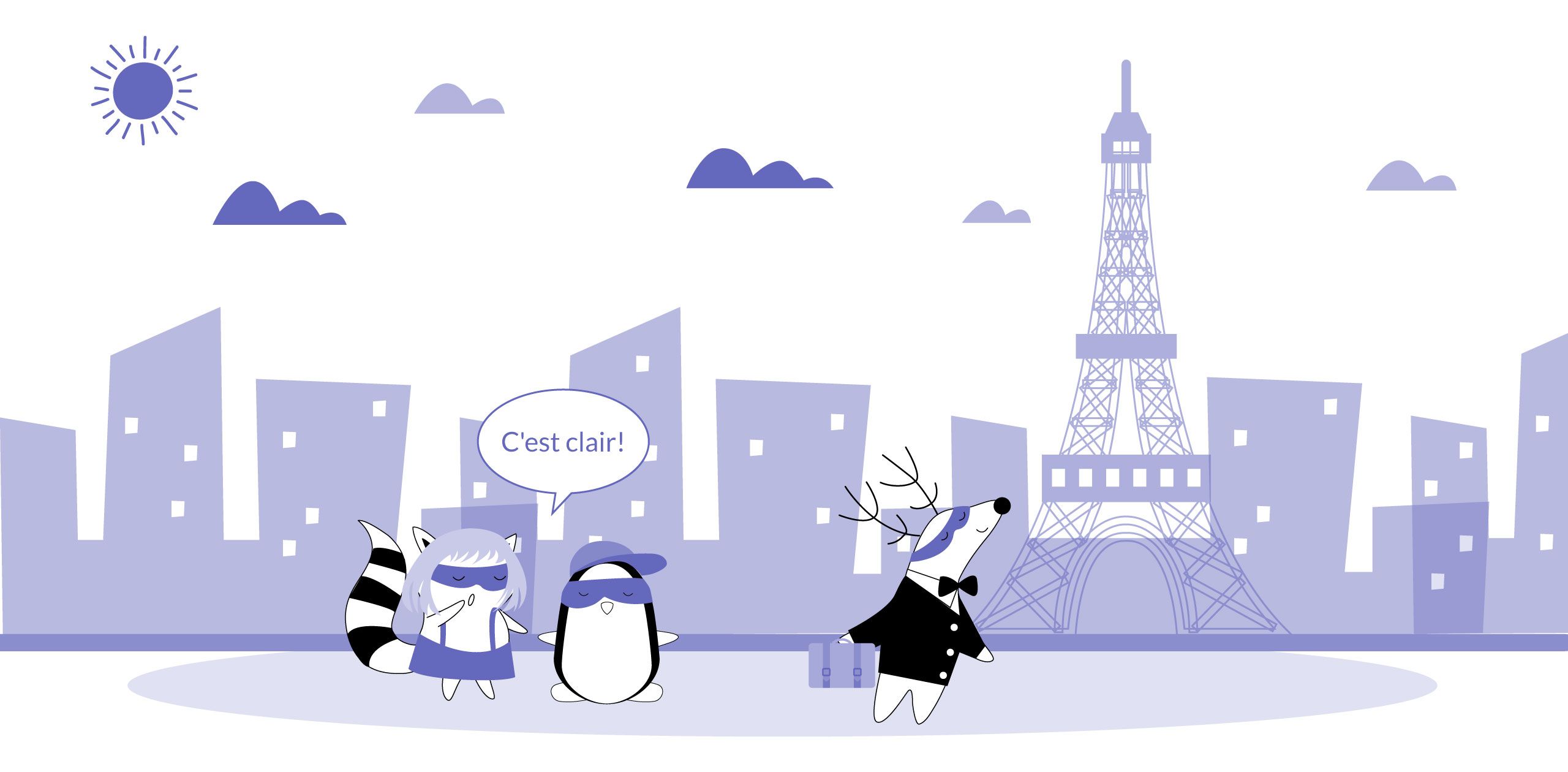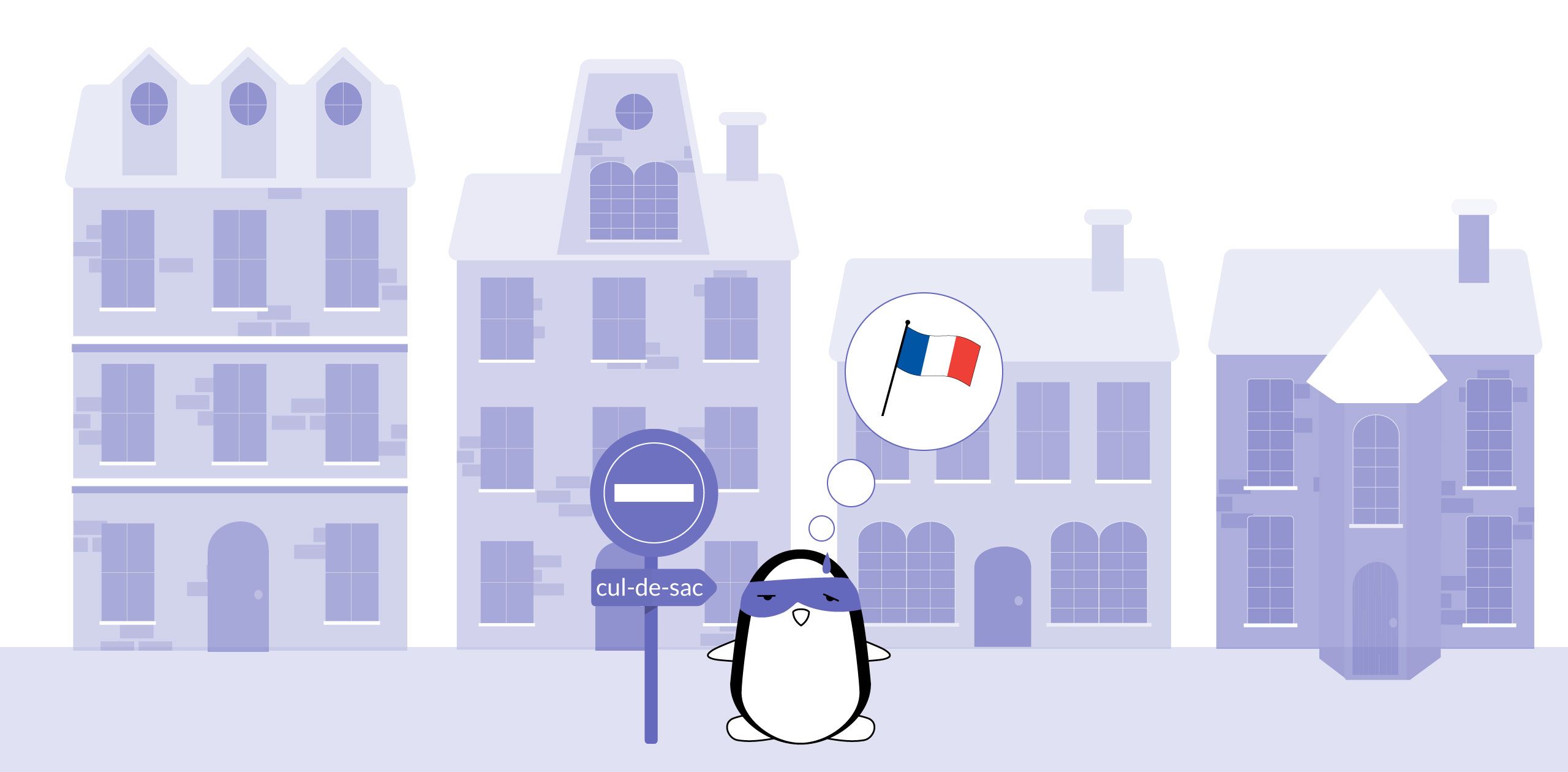
When you think of the French language, what comes to mind? Romance, wine, and cheese, right? But did you know that the French language is also known for its many unique and strange words? These words can be confusing for English speakers, but they are a lot of fun to learn and use.
Caoutchouc, yaourter, raplapla – let's explore some of the weirdest French words that your French teacher won’t tell you about. Read on to find out the 15 most funny French words with their meanings and examples, boost your vocabulary, and make your learning journey a bit funnier.
Yaourter
It may seem that the French word yaourter, relating to yogurt, would mean something like adding yogurt to something or making yogurt yourself. This, however, is not even close to the meaning of the word yaourter.
In fact, this funny French word means to sing or speak in a language that you don’t know well but want to fake. It’s more of a parody, that sounds nothing like the real language, like if you were singing through yogurt (chanter en yaourt) – another common term relating to this action.
You should also note that the word “yaourter” is a verb, which means it can be conjugated! So you can decline it according to the 1st group of French verbs: Je yaourte, tu yaourtes, il/elle/on yaourte….
Native
Translation
Je ne connais pas le français, mais comme c'est amusant de yaourter "Papaoutai" !
I don't know French, but how fun it is to sing "Papaoutai" through yogurt!
Abracadabrantesque
Abracadabrantesque is an adjective describing something that is absolutely preposterous or exaggerated. It comes from the word abracadabra, which exists in both English and French, and is used as an incantation for magic tricks.
Of course, it’s not a “naturally” created word, but a modern variation that stayed in the French vocabulary for longer – it was simply made up by using the word abracadabra and the suffix “-esque” used to create adjectives.
The invention of abracadabrantesque is mainly attributed to the French poet Arthur Rimbaud, but it was really the French president Jacques Chirac who popularized it after using it in a TV interview in 2000.
Native
Translation
C'est tout simplement une déclaration abracadabrantesque.
It's simply an abracadabrantesque statement.
Sardanapalesque
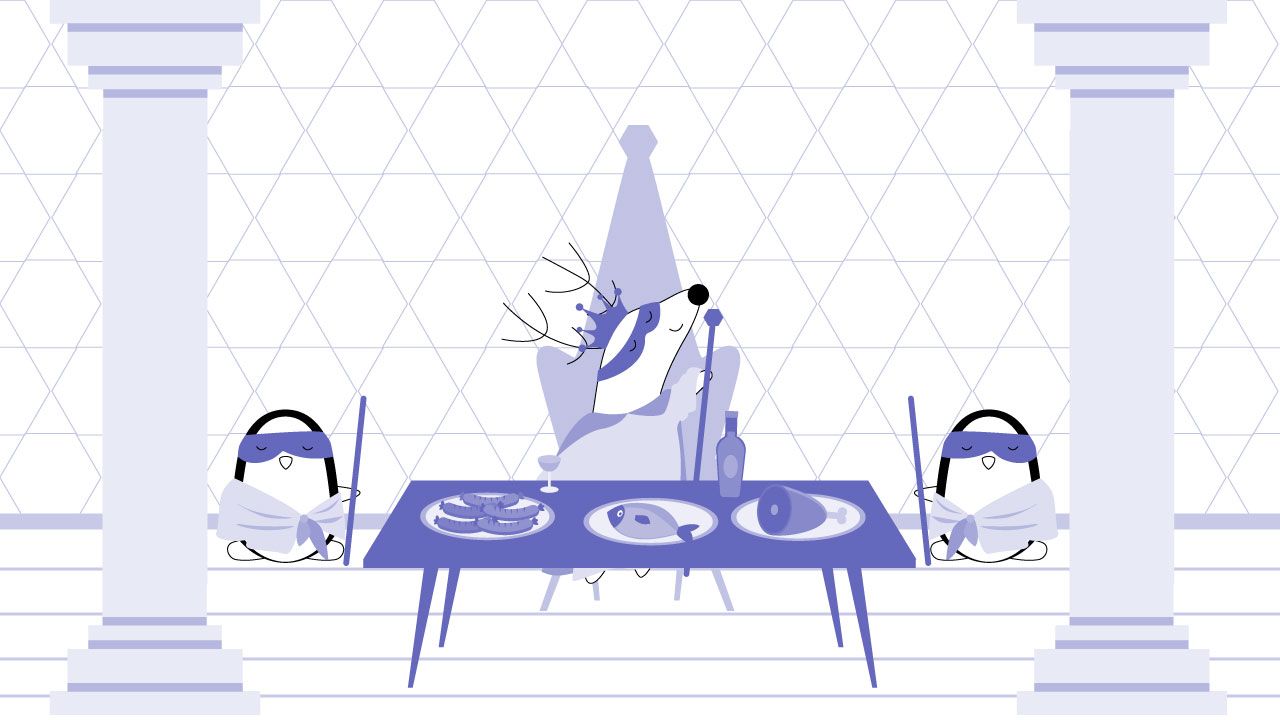
Another weird adjective, sardanapalesque, is used to describe someone who loves to live a life of luxury and enjoys every moment of it. This term also sometimes carries a negative connotation, as if the person in question is lazy and not doing anything constructive with their life.
The word originates from Sardanapalus, the name of an Assyrian king – a powerful man known for his decadent lifestyle, living in pleasure and excess. When somptueux, luxurieux, or princier are not enough to describe the life of a person, sardanapalesque comes to the rescue.
Native
Translation
Je trouve ton style de vie sardanapalesque !
I find your lifestyle sardanapalesque!
Caoutchouc
This might not be the hardest French word, but it definitely is challenging. However complex the pronunciation might be, the word simply refers to natural rubber, a bendy substance we get from the trees.
The French name (as well as the German Kautschuk and Spanish caucho, among others) comes from the South American language Quechu, where it was pronounced as kawchu. Learning this word in French will help you not only converse on topics related to it, but also use words derived from it – like caoutchouter (to coat with rubber) and caoutchoutifère (rubber-containing) whenever there’s a need.
Native
Translation
J'ai récemment acheté un toit recouvert caoutchoutifère.
I recently purchased a rubberized roof.
Pamplemousse
It would have seemed that a word with “mousse” in it would refer to a dessert, but no. In French, pamplemousse means grapefruit.
The word comes from the Dutch word pompelmoes, meaning “big lemon,” which eventually turned into the modern French word pamplemousse. This fun difference between the two “mousse” meanings can actually make this word a little easy to memorize.
Native
Translation
Il n'y avait pas d'oranges dans le magasin, alors j'ai acheté quelques pamplemousses.
There were no oranges in the store, so I bought a few grapefruits.
Métro-boulot-dodo

This is one of the French words that has become an idiom, and it’s used to describe the daily routine of working a 9 to 5 job, then going home and sleeping.
Divide it into the words: métro means the subway, boulot a job (in slang), and dodo refers to baby talk for “sleep.” Now, smash it together, get “commuting-work-sleep” – and there you have it, a French portmanteau that describes adult life.
This word became popular in the 1970s as more and more people were commuting to work via the subway and working long hours, and while you may not hear it often, it’s the one that probably every French person is scared of.
Native
Translation
Mon métro-boulot-dodo est vraiment épuisant.
My subway-work-sleep lifestyle is really exhausting.
Frappadingue
You make this word by combining frapper (meaning “hit” or “strike”) with dingue (meaning “crazy”). Together, they would mean something like “crazy as if they were hit on the head.”
So a frappadingue is basically a crazy person – and it’s one of the French words you should use sparingly, lest you anger someone. It can be used to describe people, events, or anything that seems out of the ordinary.
Native
Translation
Cette fête est une vraie frappadingue !
This party is a real circus!
Vachement
Now, this is a word that many French learners find funny – after all, you don't often hear the word "cow-ly."
But in fact, vachement is a common intensifier in French, similar to "really" or "very." It can be used as a synonym for “a lot,” and while it’s not very polite or formal, it is used vachement, especially among young people.
Native
Translation
Il est vachement intelligent, ce gamin.
This kid is really smart.
You might also hear the word chouette (an owl) – meaning "great" or "cool" – used in a similar way, but as an adjective or an exclamation.
Hurluberlu
This is one of those funny words that don't have an English equivalent, which can make it a bit tricky to use.
A hurluberlu is a crazy person, but not in the same way as a frappadingue. French people use it to describe people who are eccentric or have strange habits. The word hurluberlu was first used in the 16th century by the French Renaissance writer François Rabelais, but it’s unknown where it really came from or how it was made up.
Native
Translation
Sybill Trelawney de Harry Potter était une vraie hurluberlu.
Sybill Trelawney from Harry Potter was a real crackpot.
Tohu-bohu
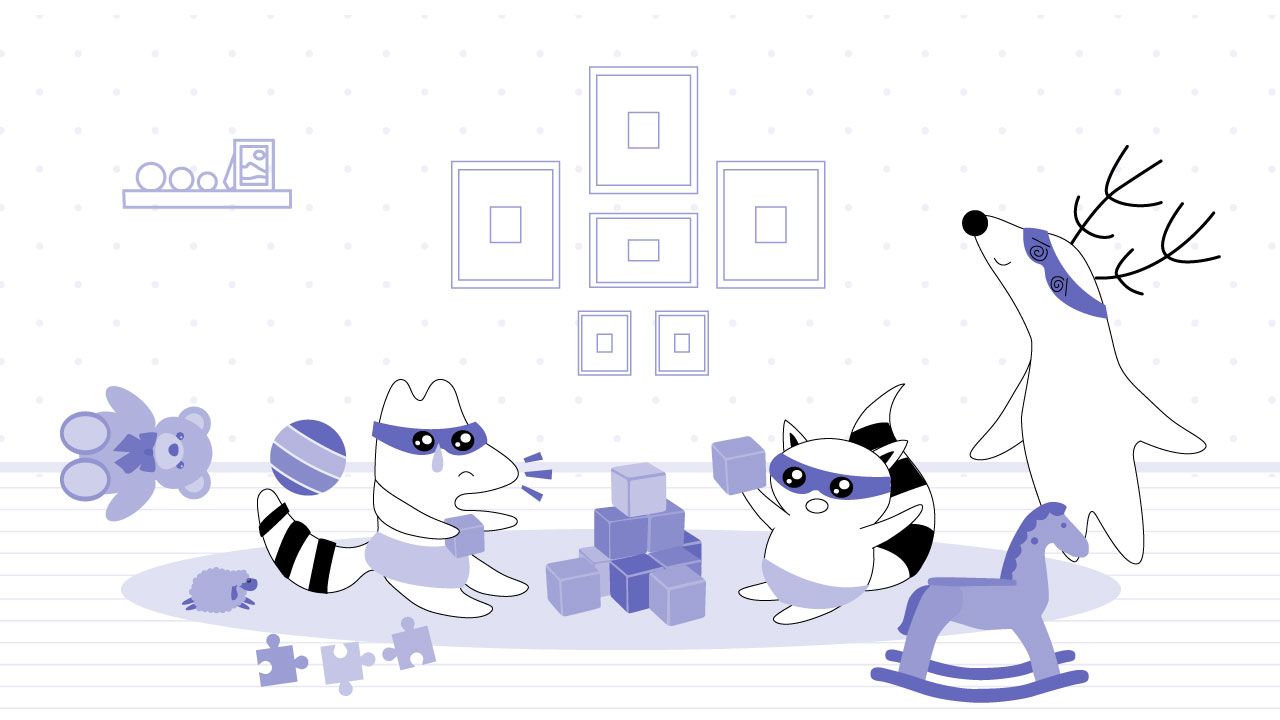
This word describes a state of chaos or disorder, and it’s made up of the Hebrew phrase tohu wa-bohu. Those words refer to the void and chaos that preceded the creation of the world in the Book of Genesis. Nevertheless, simple “chaos” is too little to describe the modern meaning of tohu-bohu used in French.
It’s the confusion or pandemonium that occurs when the world crashes, both literally and figuratively. It can be used in many contexts – for example, by a mom who must stay home with her four sick children; or a student showing up to an exam he was not aware of; or simply a person who can’t find a new room for rent in the middle of a pandemic; or even in the context of chaos at a certain place.
Native
Translation
Le tohu-bohu du marché est insupportable.
The market's hustle and bustle is unbearable.
Raplapla
If you’re a fan of the French “r”, raplapla is definitely a word to remember. However, while the word itself sounds funny, its meaning is not very exciting. Raplapla refers to the feeling of being tired, unmotivated, depleted, and depressed all at the same time.
This is something that you can feel after a long day of tiring work, or a three-day journey, or a whole month of tohu-bohu at school or work. Feeling raplapla? Make sure to lie down and get some rest.
Native
Translation
Je me sens raplapla après cet examen...
I'm feeling raplapla after this exam…
Meugler
You will never guess what this word means without a hint, so here it is: meugler is the sound an animal makes. Got it? Yes, it’s the French “moo.”
Pretty different from the English word, huh? It’s said to have roots in the Latin word “mugilare,” but we will never find out where it comes from, especially taking into account that cows can’t make the /g/ sound.
Native
Translation
Maman, on est allés à la ferme, et j'ai entendu un meuglement de vache !
Mom, we went to the farm, and I heard a cow moo!
Pantouflard
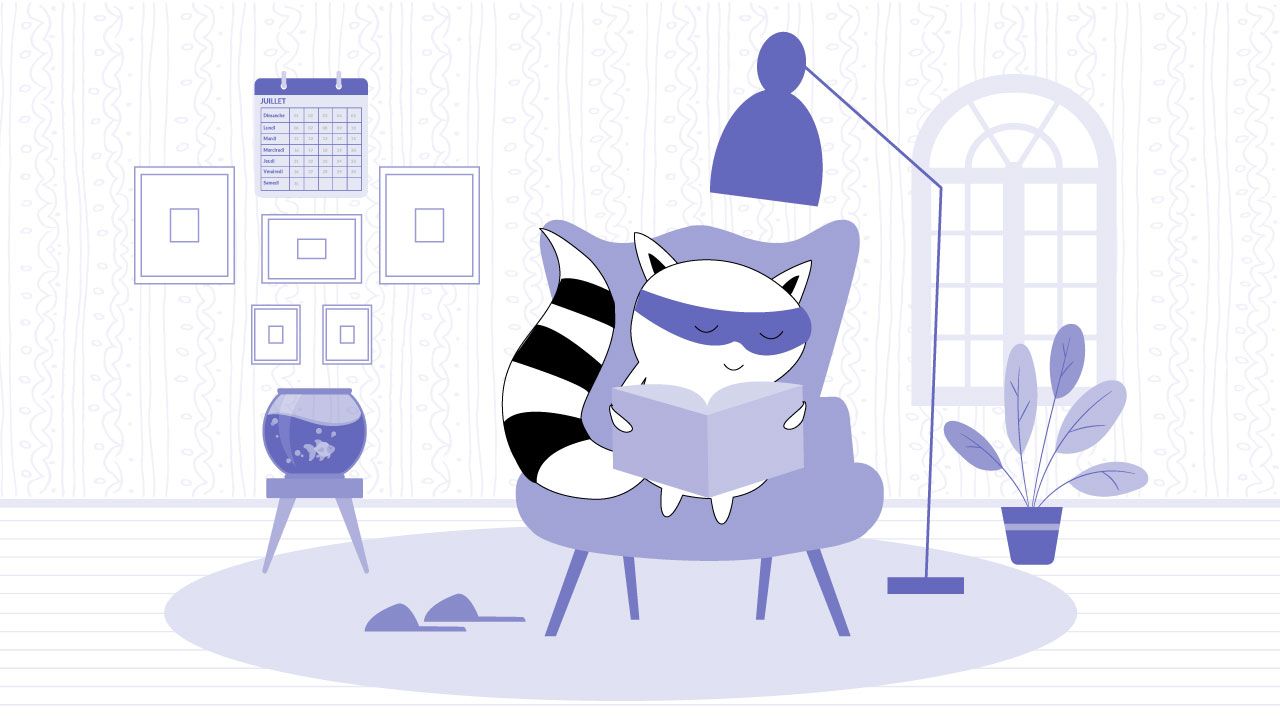
This is an interesting word with a bit of a negative connotation. It describes a person who leads a very boring and monotonous life, without much excitement or adventure. This person is not likely to take risks, try new things, or travel the world.
Want to guess where the word came from? Yes, from another French word, “pantoufle” – “a slipper.” So the literal translation for pantouflard would basically be a person who likes to wear the slippers all day (or life?) long. It’s someone who doesn’t leave the house.
Native
Translation
Il est trop pantouflard pour moi, ce type.
This guy is too boring for me.
Saperlipopette
This exclamation is used to express surprise (both positive and negative) and yell something nun-vulgar. It went out of style, but you still can hear it sometimes.
Saperlipopette is actually a deformation of another French exclamation that you might already be familiar with: sacredieu or sacrebleu that were pretty impolite, so French people needed to disguise them.
You can use it in many different situations: when you finally meet your long-awaited friend; when you get a high score on the test; when someone says something unexpected; or when you stub your toe.
Native
Translation
Saperlipopette, c'est un vrai miracle !
Saperlipopette, this is a real miracle!
Fute-fute
There are many words you will come across when learning French that consist of repeating syllables, but fute-fute is one you won’t hear as frequently as others like, chouchou (a common term of endearment). Nevertheless, it’s the one worth knowing, even if simply to show off.
Fute-fute means clever or bright, but is most often used in the negative phrase “pas fute-fute,” referring to someone who is not very smart.
Native
Translation
Son fils du milieu n'est pas fute-fute, mais il est toujours agréable de passer du temps avec lui.
Her middle kid is not very bright, but he's still nice to spend time with.
Final Thoughts on Weird French Words
As you can see, the French language is full of interesting and strange words that can be confusing for English speakers. But these words are often a lot of fun to learn and use, and they can add an extra level of excitement to your learning process.
So don't be afraid to try out some of the weirdest French words – you might just surprise yourself with how well you know them! And if you want to practice a bit more, check the Langster App to learn French vocabulary in real-life contexts. See for yourself that learning can be exciting!







